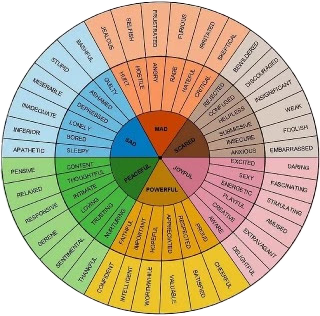We all want our children to succeed. Whether kids ask or we choose to offer our advice, we have the choice to adopt a positive or negative perspective. Both will facilitate change, however, which approach will garner more effective and efficient change? Taking a positive approach will encourage more engagement, build momentum and ultimately reap more positive results.
We often think the fastest route to success is coaching our kids to change or avoid their weaknesses. What we fail to remember is that focusing on the weakness is challenging. It emphasizes what we don’t have. It is another mountain to climb. Yet, we are serious taskmasters that are on a mission to meet an agenda regardless of whether it is difficult or not.


When it comes to our children, their worlds revolve around play, discovery and fun. Overall their perspectives are much more optimistic. Are children naturally born confident? I found this article that suggests it might be linked to our genes. I’d argue that there is a basic level of confidence and optimism that we are bestowed upon us at birth. It’s this confidence and curiosity that propels us to learn to eat, drink, engage with others and basically learn survival strategies. If we don’t have a skill like walking we keep trying until we walk then progress to running. AND, note, you don’t hear children complain, they just get straight to accomplishing the task. They seem to intrinsically focus on their own strengths.
If this is the case then, we as the adult mentors should follow the lead of our children and capitalize on their strength-focused strategy. This doesn’t mean that we ignore their weaknesses or deficiency in certain skills, but we can ask them what skill they already have that can be expanded to help them become better at another skill.
In addition, we need to show patience as this process doesn’t happen overnight and typically requires scaffolding baby steps of practicing and learning. Slowly but surely momentum builds which in turn increases competence and confidence. Add persistence and bingo, time seems to shrink into a heartbeat and wink, and successful mastery is achieved.
Parents, take it from this old 900 year old fairy, the last six years of my career was spent in education kindergarten heaven. It was glorious to return to the natural optimistic bias of these wee ones along with a curriculum founded in a philosophy of inquiry-based learning. My focus was to celebrate students’ strengths and follow their interests while being the provocateur in offering new skill development. The days were jam-packed with inspiration from these little tykes. Those kindergarten teaching years reinforced that successful learning and overcoming obstacles is easier rooted in a positive perspective and celebrating strengths.
Take a look at some of these links for resources supporting strength-based parenting.


Quick Take Away Links
A Child’s Bias to Optimism:
A great article on how focusing on our children’s weaknesses can be a detrimental parenting strategy:
- https://greatergood.berkeley.edu/article/item/how_to_be_a_strength_based_parent_for_kids_with_learning_differences
- https://www.bricks4kidz.com/blog/identifying-your-childs-strengths/
- https://www.psychologytoday.com/ca/blog/between-cultures/202002/how-use-your-strengths-better-life
Laughter and Humour With Kids:
- https://www.scholastic.com/teachers/articles/teaching-content/ages-stages-dont-forget-laugh-importance-humor/
- https://theirworld.org/news/no-joke-laughter-vital-part-of-child-development






